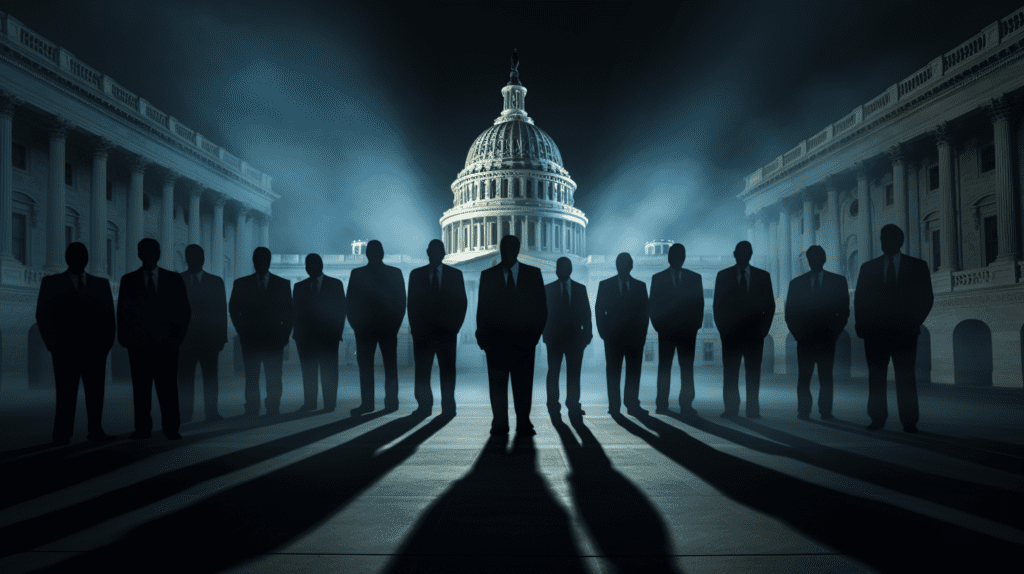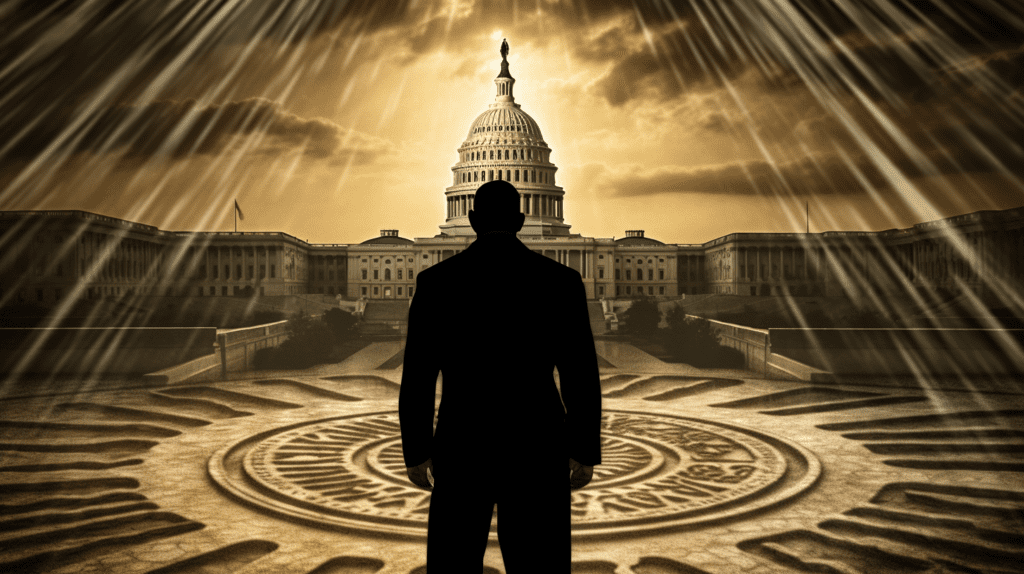The “deep state” conspiracy theory, particularly as it has been emphasized by supporters of former President Donald Trump, alleges the existence of a hidden, powerful network within the U.S. government, working to undermine and oppose Trump’s presidency and agenda. In reality, the epithet is an elaborate way of discrediting the non-partisan civil service personnel who are brought in to government for their expertise and competence, who typically remain in their posts through Presidential transitions regardless of which party is occupying the White House.

Origin of the deep state meme
The term “deep state” originated in Turkey in the 1990s, referring to a clandestine network of military officers and their civilian allies who, it was believed, were manipulating Turkish politics. In the American context, the term was popularized during the Trump administration as a meme, evolving to imply a shadowy coalition — echoing other popular conspiracy theories such as the antisemitic global cabal theory — within the U.S. government, including intelligence agencies, the civil service, and other parts of the bureaucracy.
Main claims
- Bureaucratic opposition: The theory posits that career government officials, particularly in intelligence and law enforcement agencies, are systematically working against Trump’s interests. This includes alleged sabotage of his policies and leaking information to the media.
- Manipulation of information: Proponents believe that these officials manipulate or withhold information to influence government policy and public opinion against Trump.
- Alleged connections with other theories: The deep state theory often intersects with other conspiracy theories, like those surrounding the investigation of Russian interference in the 2016 election and the impeachment proceedings against Trump. It suggests these events were orchestrated by the deep state to discredit or destabilize his presidency.
Contextual factors
- Political polarization: The rise of the deep state theory is partly attributed to the increasing political polarization in the U.S. It serves as a narrative to explain and rally against perceived opposition within the government.
- Media influence: Certain media outlets and social media platforms have played a significant role in propagating this theory. It’s often amplified by commentators who support Trump, contributing to its widespread dissemination among his base.
- Trump’s endorsement: Trump himself has referenced the deep state, particularly when discussing investigations into his administration or when responding to criticism from within the government.
Criticism and counterarguments to deep state “theory”
- Lack of concrete evidence: Critics argue that the deep state theory lacks substantial evidence. They contend that routine government processes, checks and balances, and the separation of powers are mischaracterized as clandestine operations.
- Undermining trust in institutions: There’s concern that such theories undermine public trust in vital governmental institutions, particularly those responsible for national security and law enforcement.
- Political tool: Detractors view the deep state concept as a political tool used to dismiss or discredit legitimate investigation and opposition.

Impact on governance and society
- Influence on supporters: For many Trump supporters, the deep state theory provides an explanatory framework for understanding his political challenges and defeats. It galvanizes his base by portraying him as an outsider battling corrupt, entrenched interests.
- Public trust and conspiracism: The theory contributes to a broader erosion of trust in government and institutions, fostering a climate where conspiratorial thinking becomes more mainstream.
- Policy implications: Belief in the deep state can impact policy discussions and decisions, as it frames certain government actions and policies as inherently suspect or malicious.
Comparative perspective
Globally, similar theories exist in various forms, often reflecting local political and historical contexts. They typically emerge in situations where there is a distrust of the political establishment and are used to explain perceived injustices or power imbalances.
The deep state conspiracy theory as espoused by Trump’s MAGA movement plays a significant role in current American political discourse, impacting public perception of government, policy debates, and the broader social and political climate. Its lack of verifiable evidence and potential to undermine democratic institutions make it a dangerous propaganda prop applied recklessly by the current GOP frontrunner for the 2024 nomination.
Comments are closed.